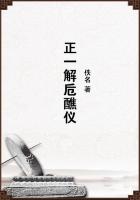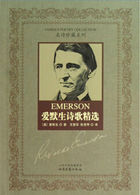Revolutions are the work of passion:the product of a social and political condition in which the masses are permeated with discontent,because the social organs have ceased to discharge their functions.They are not ascribable to the purely intellectual movement alone,though it is no doubt an essential factor.The revolution came in any case because the social order was out of joint,not simply because Voltaire or Rousseau or Diderot had preached destructive doctrines.The doctrines of the 'rights of man'are obvious enough to have presented themselves to many minds at many periods.The doctrines became destructive because the old traditions were shaken,and the traditions were shaken because the state of things to which they corresponded had become intolerable.The French evolution meant (among other things)that in the mind of the French peasant there had accumulated a vast deposit of bitter enmity against the noble who had become a mere parasite upon the labouring population,retaining,as Arthur Young said,privileges for himself,and leaving poverty to the lower classes.The peasant had not read Rousseau;he had read nothing.But when his discontent began to affect the educated classes,men who had read Rousseau found in his works the dialect most fitted to express the growing indignation.Rousseau's genius had devised the appropriate formula;for Rousseau's sensibility had made him prescient of the rising storm.What might be a mere commonplace for speculative students suddenly became the warcry in a social upheaval.In England,as I have tried to show,there was no such popular sentiment behind the political theories:and reformers were content with measures which required no appeal to absolute rights and general principles.Bentham was no Rousseau;and the last of men to raise a warcry.Passion and sentimentalism were to him a nuisance.His theories were neither suggested nor modified by the revolution.He looked on with curious calmness,as though the revolutionary disturbances were rather a transitory interruption to the progress of reform than indicative of a general convulsion.His own position was isolated.He had no strong reforming party behind him.The Whigs,his main friends,were powerless,discredited,and themselves really afraid to support any vigorous policy.They had in the main to content themselves with criticising the warlike policy which,for the time,represented the main current of national sentiment.Bentham shared many of their sympathies.He hated the abstract 'rights of man'theory as heartily as Burke.It was to him a 'hodge-podge'of fallacies.On the other hand,he was absolutely indifferent to the apotheosis of the British Constitution constructed by Burke's imagination.He cared nothing for history in general,or regarded it,from a Voltairean point of view,as a record of the follies and crimes of mankind.He wished to deal with political,and especially with legal,questions in a scientific spirit --but 'scientific'would mean not pure mathematics but pure empiricism.He was quite as far from Paine's abstract methods as from Burke's romantic methods.Both of them,according to him,were sophists:though one might prefer logical and the other sentimental sophistries.Dumont,when he published (1802)his versions of Bentham,insisted upon this point,Nothing,he says,was more opposed to the trenchant dogmatism of the abstract theorists about 'rights of man'and 'equality'than Bentham's thoroughly scientific procedure (Discours Préliminaire).Bentham's intellectual position in this respect will require further consideration hereafter.All his prejudices and sympathies were those of the middle class from which he sprang.He was no democrat:he had no particular objection to the nobility,though he preferred Shelburne to the king's friends or to the Whig aristocracy.The reforms which he advocated were such as might be adopted by any enlightened legislator,not only by Shelburne but even by Blackstone.He had only,he thought,to convert a few members of parliament to gain the acceptance for a rational criminal code.It had hardly even occurred to him that there was anything wrong in the general political order,though he was beginning to find out that it was not so modifiable as he could have wished by the new ideas which he propounded.
Bentham's activity during the first revolutionary war corresponded to this position.The revolution,whatever else it might do,obviously gave a chance to amateur legislators.There was any amount of work to be done in the way of codifying and reforming legislative systems.The deviser of Utopias had such an opening as had never occurred in the world's history.















